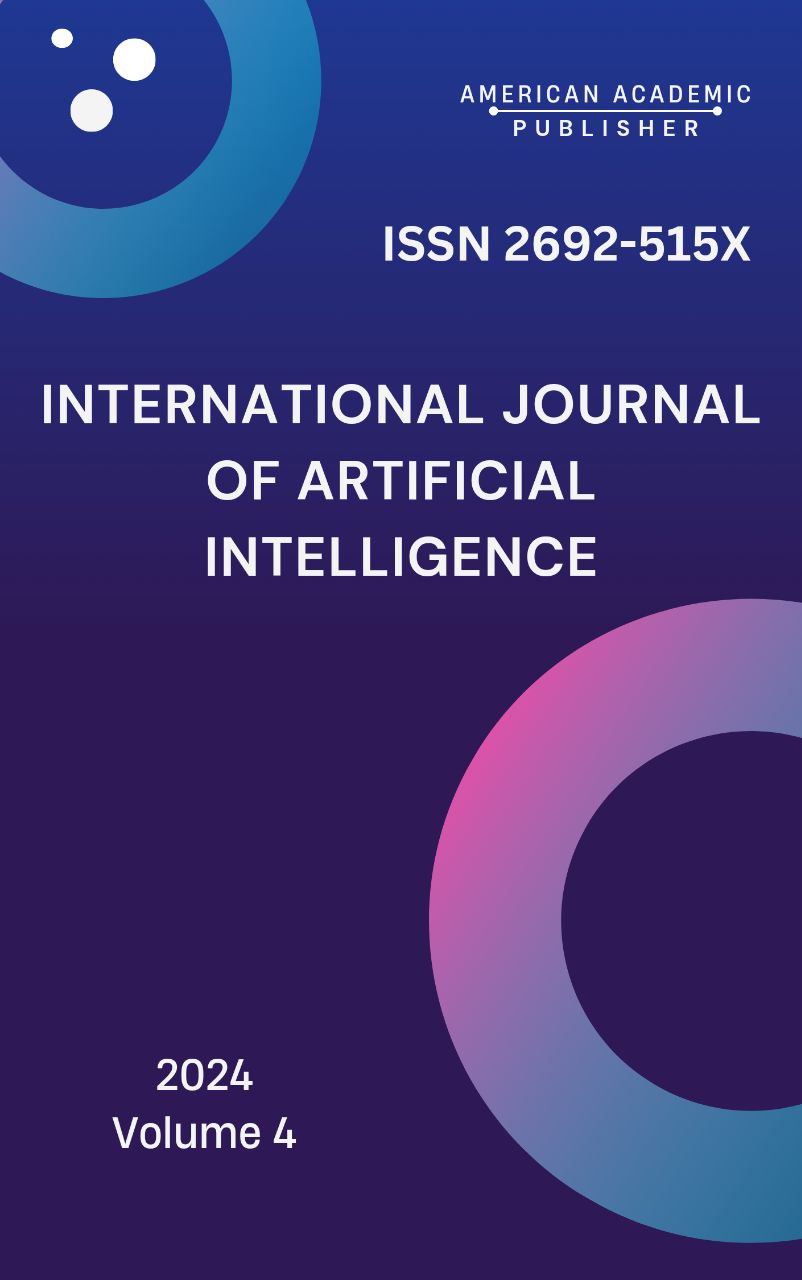 Articles
| Open Access |
Articles
| Open Access | IMPROVING WRITING SKILLS OF STUDENTS IN ENGLISH LANGUAGE
Abdiolimova Qizlarxon Subhonali qizi,Qahhorova Mavluda Mukarramovna , Head of the Department of German and French language at Fergana State UniversityAbstract
This essay will delve into the historical context of improving writing skills of students, key figures in the field, the impact of such initiatives, influential individuals who have contributed to the field, various perspectives, and potential future developments related to this topic.
Keywords
fundamental skill, academic writing, approaches, methods, printer press, social media, writing-workship ability, student-ceentered approach.
References
Astin, A. W. (1993). What matters in college?: Four critical years revisited. San Francisco: Jossey-Bass.
2.Benjamin, R., & Chun, M. (2003). A new field of dreams: The Collegiate Learning Assessment Project. Peer Review, 5, 26-29.
3.Bereiter, C., & Scardamalia, M. (1987). The psychology of written composition. Hillsdale, NJ: Erlbaum.
4.Boice, R. (1985). Cognitive components of blocking. Written Communication, 2, 91-104.
5.Boice, R. (1997). Which is more productive, writing in binge patterns of creative illness or in moderation? Written Communication, 14, 435-459.
6.Bok, D. (2006). Our underachieving colleges: A candid look at how much students learn and why they should be learning more. Princeton, NJ: Princeton University Press.
7.Brandt, D. (2005). Writing for a living: Literacy and the knowledge economy. Written Communication, 22, 166-197.
8.Burstein, J. (2003). The e-rater scoring engine: Automated essay scoring with natural language processing. In M. D. Shermis & J. Burstein (Eds.), Automated essay scoring: A cross-disciplinary perspective (pp. 113-122). Hillsdale, NJ: Erlbaum.
9.Center for Survey Research and Analysis (2002, November). History research paper study . Retrieved December 15, 2003, from the Concord Review Web site: www.tcr.org/tcr/institute/historytcr.pdf.
Daly, J. A. (1985). Writing apprehension. In M. Rose (Ed.), When a writer can’t write (pp. 43-82). New York: Guilford.
11.Duncan, J., Seitz, R. J., Kolodny, J., Bor, D., Herzog, H., Ahmed, A., et al. (2000). A neural basis for general intelligence. Science, 289, 457-460.
12.Engle, R. W., Tuholski, S. W., Laughlin, J. E., & Conway, A. R. A. (1999). Working memory, short-term memory, and general fluid intelligence: A latent-variable approach. Journal of Experimental Psychology: General, 128, 309-331.
13.Ericsson, K. A. (2006). The influence of experience and deliberate practice on the development of superior expert performance. In K. A. Ericsson, N. Charness, P. J. Feltovich, & R. R. Hoffman (Eds.), The Cambridge handbook of expertise and expert performance (pp. 683703). New York: Cambridge University Press.
14.Ericsson, K. A., Krampe, R. T., & Tesch-Römer, C. (1993). The role of deliberate practice in the acquisition of expert performance. Psychological Review, 100, 363-406.
15.Ericsson, P. F., & Haswell, R. H. (Eds.) (2006). Machine scoring of student essays: Truth and consequences. Logan, UT: Utah State University Press.
16.Fayol, M. (1999). From on-line management problems to strategies in written composition. In M. Torrance & G. Jeffery (Eds.), The cognitive demands of writing: Processing capacity and working memory effects in text production (pp. 13-23). Amsterdam: Amsterdam University Press.
Article Statistics
Downloads
Copyright License

This work is licensed under a Creative Commons Attribution 4.0 International License.
